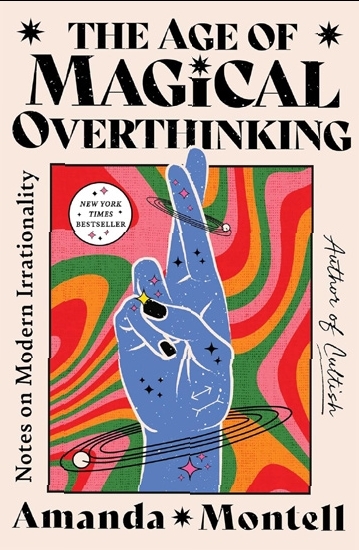
Every generation has its own crisis, the linguist and podcaster Amanda Montell writes. In the 1960s and ’70s, young Americans organized against “physical tyrannies” such as voter suppression and workplace discrimination. But times have changed. The 21st century brought a shift in our attention from external threats to internal ones, Montell says. Rates of anxiety and depression among all demographics have spiked. Loneliness is a public health threat. We’re glued to our phones, alienated from loved ones and surrounded by misinformation. People everywhere, Montell writes, are facing a crisis of the mind. From this grim landscape emerges “The Age of Magical Overthinking: Notes on Modern Irrationality,” Montell’s third book and a sweeping look at mental health, behavioral science, misinformation and online culture in the 2020s. In it, she argues that the ills of the internet era are best explained by looking back on humanity’s history, when our minds developed shortcuts to improve our odds of survival. Those shortcuts are called cognitive biases, and they may lead us to do strange things like falling for a conspiracy theory or accepting mental health advice from an untrained influencer. Montell leads us through an engaging roundup of “21st century derangement,” from celebrity worship to tradwife discourse, examining how cognitive biases may contribute. But by positioning her work as a response to America’s broad struggle with mental health, Montell promises more than she delivers. Rather than focusing on a tour of our shared cognitive glitches, she juggles meta-commentary on such vast topics as the modern mind and the internet, dropping balls along the way. Montell is better at analysis than providing answers, but she believes that a good dose of considered self-awareness can go a long way. Getting away from the screen and doing something physical, even assembling furniture, can also be an antidote. The author presents an engaging package suitable for anyone who wants to better understand the chaos of our modern society. Bottom line: “The Age of Magical Overthinking” delivers interesting topics, fun research and vivid stories. | 
